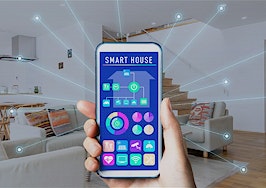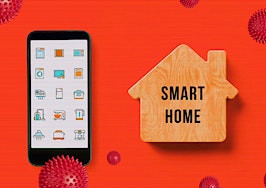With many Americans now working from home, and given all the advances in building codes and smart home technology, a lot has changed around how we use energy.

Mike Phillips
To learn more about energy trends in 2020, I reached out to Mike Phillips, co-founder and CEO of Sense. The company provides a smart home energy monitor that allows you to save money by letting you know what’s on and off in your home right now. Customers can eliminate wasted energy by keeping track of appliances that are running in their homes.
In an email interview, we discussed a recent survey Sense conducted via SurveyMonkey to find out how Americans are coping with energy costs this summer.
(Note: This interview was edited for grammar and style).
What were the most surprising things you learned from that survey?
The survey showed that nearly all Americans (91 percent) plan to stay home more this summer, and about three-quarters are concerned about their rising energy costs. We weren’t surprised to see those trends with utility bills rising as more people stay home.
We were surprised, though, to see that 40 percent of Americans don’t plan to take any steps to reduce their energy usage in spite of the costs. We think that one reason for this is lack of information about how to have an impact on energy use in your own home.
Our survey found that only a fifth of Americans can estimate very accurately how much air conditioning contributes to their total utility costs. Most people are in the dark when it comes to understanding how their home is using electricity, and so they simply don’t know how to reduce their bills effectively.
Surprisingly, most people we surveyed (56 percent) don’t plan to adjust their thermostat to lower their costs. If you have an inefficient HVAC — which is not uncommon— you may get some savings by adjusting the thermostat. The smaller the difference between the indoor and outdoor temperatures, the lower your overall cooling bill will be.
Even better would be to conduct an energy audit to see if there’s a problem with your equipment or insulation. But if you don’t know how much your air conditioning contributes to your bill on a day-to-day basis, it’s hard to find the most effective ways to reduce usage and save money.
Especially with the current heat waves facing people right now, what are some of the simple things that people should be doing to stay cool while keeping their energy costs under control?
A lot of small steps can add up to big savings. For instance, in many cases, fans are much more energy efficient than air conditioning, so you can save money by switching to ceiling or room fans whenever the outside temperatures and humidity are low.
If you are using central AC, make sure you’ve maintained the HVAC filters regularly — a simple chore with big impacts. Don’t leave your HVAC in fan mode. It uses about 500W just to move air around and can actually bring in warm air if you have leaky ducts. Instead, set it to auto mode. (Check out Sense’s guide to reducing AC costs this summer for lots of additional tips.)
Many Americans are embracing simple steps to save on utility bills. Our research showed that more than half will use fans as much as possible this summer rather than air conditioning.
People should also think about energy use across their entire home. For example, you can get rid of energy hogs like those old, inefficient fridges in the basement. Another opportunity for savings is devices that stay on continuously, which account for 23 percent of the average electric utility bill, costing an average of $308 annually.
Simple changes like turning off consumer electronics when they’re not in use or replacing pool pumps that stay on continuously could lead to big savings.
What role can smart home technology play in keeping energy costs under control, and what should real estate agents know so they can communicate these benefits to their clients?
Only about a quarter of the people we surveyed have a smart or programmable thermostat or have plans to install one. This is an area where innovation can have an impact on many homes by automatically reducing your HVAC usage when you’re not around.
Newer homes are being built with lots of smart technology integrated right into the house. Smart lighting uses super efficient LEDs and smart thermostats fine-tune the heating and cooling needs.
At Sense, our vision is that homes will be more than a collection of smart devices. Instead, the core systems of the home will become smart. They’ll be able to gather intelligence about the key resources entering the home, such as electricity and water.
These next generation smart homes will be able to discover problems, make recommendations and optimize valuable resources far more efficiently than today’s homes.
Agents have an opportunity to educate homebuyers and sellers about these smart home trends and how they can improve people’s daily lives while adding value to their homes. Many older homes can be updated with smart technology today.
What types of incentives are utility companies offering homeowners to use smart home technology?
In many states, utilities offer free home assessments and rebates for smart thermostats, air conditioning upgrades, Energy Star appliances and heating equipment. Summer can be a great time to assess your home’s energy efficiency and find ways to keep more of the cool air inside.
New homes are very efficient, but more than half of American homes were built before 1980. An average 1970s home uses almost twice as much energy as a new efficient home, which means there’s lots of room for energy improvements.
Our survey found that nearly half (45 percent) of American’s aren’t aware of their utility’s energy saving programs, so Realtors can help by informing people about them.
With more people now working home, do you think there will be a bigger move toward solar energy for homebuyers? And what role will smart home technology play for solar-powered homes?
With a variety of financing options and the federal tax credit (ITC) available, solar can be a great investment with a short payback period that adds value to your home, especially if you’re using more electricity now.
In response to climate change and the availability of inexpensive clean energy, many states and utilities have made commitments to move aggressively to clean energy such as solar and wind.
In California, for instance, all new homes with enough sun exposure are required to have solar panels starting this year. Increasingly, we think that homebuyers will expect to see solar panels on new homes because they offer such large cost savings.
When you can track both home energy usage and solar production in real time, which you can do now with the Sense app, you can make smart decisions like charging your EV during the day when your panels are producing lots of energy. It’s very satisfying when you can generate your own energy and reduce your utility bill or cancel it out altogether!
Brandon Doyle is a Realtor at Doyle Real Estate Team — RE/MAX Results in Minneapolis and co-author of Mindset, Methods & Metrics – Winning as a Modern Real Estate Agent. You can follow him on Twitter.






